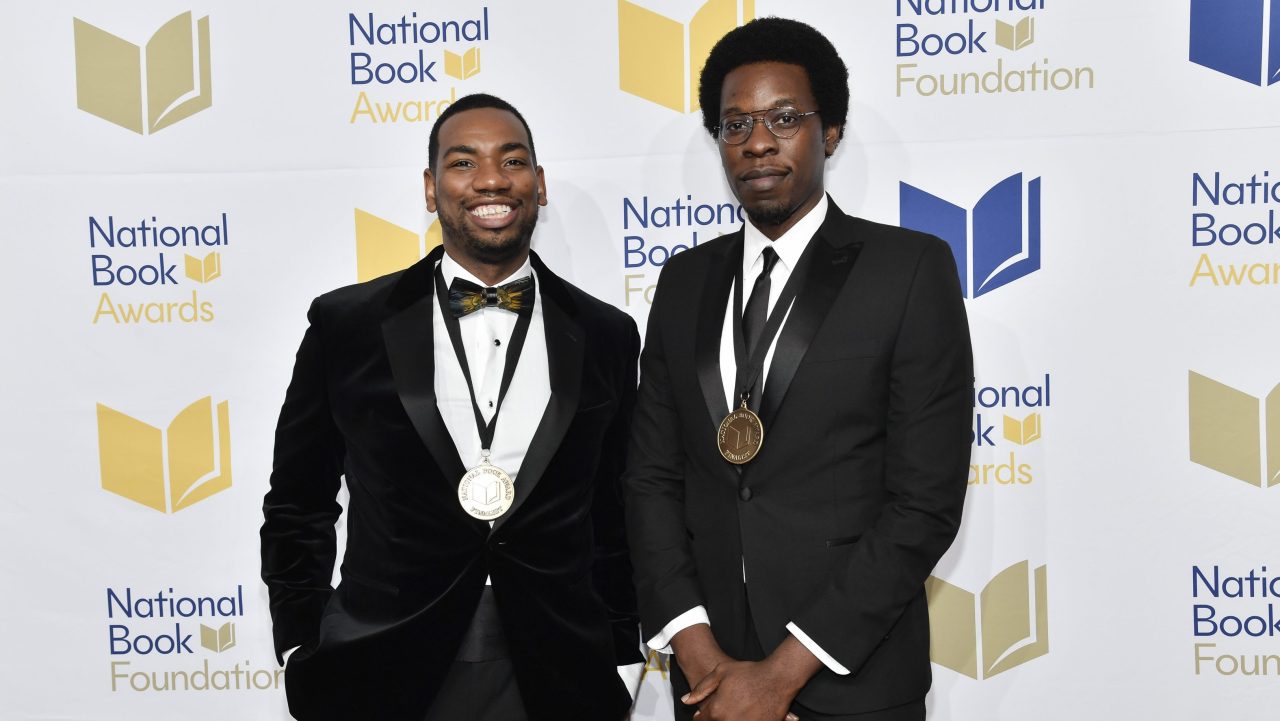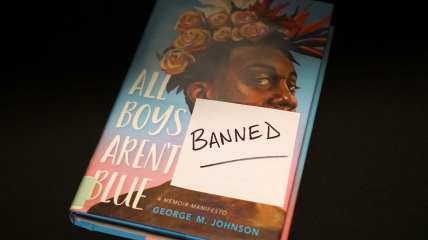Pulitzer Prize-winning authors told they couldn’t read from book about George Floyd while at Tennessee school
Robert Samuels and Toluse Olorunnipa also received word that they couldn't discuss topics such as systemic racism nor could they distribute their book, "His Name Is George Floyd," to students.
Two acclaimed Black journalists remain confused and unsure who’s to blame after receiving last-minute word they could not read from their Pulitzer Prize-winning book on George Floyd while visiting a Memphis, Tennessee, high school.
According to NBC News, Robert Samuels and Toluse Olorunnipa, authors of “His Name Is George Floyd” — a biographical overview of Floyd’s life that examines how racial injustice impacted him from his youth until his death — claimed they were blindsided to learn two days before the Oct. 26 event at Whitehaven High School that they couldn’t read from their book or discuss systemic racism.
They believe event organizers imposed the restrictions in conformity with Tennessee legislation prohibiting certain publications in schools.

“It was really disappointing to hear that our speech was going to be limited,” said Olorunnipa. “Not only for us, but for the students whose access to knowledge is going to shape their journey in this world and in this country.”
While it is unclear who administered the restrictions, Memphis-Shelby County Schools spokeswoman Cathryn Stout blamed the issue on miscommunication.
She told NBC that “Memphis-Shelby County Schools did not send any messaging” restricting the authors from reading an excerpt from the book or discussing certain topics. The only difficulty, she said, was allowing the school to distribute the book to students during the event, which would require a lengthy review owing to state and district requirements.
Stout contended the district was “saddened and disappointed” that the authors “were given misinformation that was said to have come from us.”
Memphis Reads, a community reading initiative at Christian Brothers University in Memphis, arranged the event. Every year, the group selects a book that “engages Memphians in issues that are relative to daily societal topics and themes” and organizes activities in conjunction with the work.
Samuels and Olorunnipa said they planned the event with Justin Brooks, the university’s Center for Community Engagement director. The authors said Brooks informed them of the restrictions, but they did not directly interact with the school.
Stout noted that “Memphis Reads apologized for the miscommunication” after the incident, NBC reported.
According to the National Center for Education Statistics, Whitehaven High School and the Memphis-Shelby County Schools system are predominantly Black.
Although the students who attended listened attentively to the authors during the event, Samuels and Olorunnipa believed the alleged restriction shortchanged the high schoolers. The writers stated that they could not thoroughly speak on the book’s ideas and instead focused on sharing their own lives’ details with the teens.
Tennessee is one of several states that have placed limitations on school library materials and what instructors may teach children about race. State lawmakers passed the Age-Appropriate Materials Act last year, requiring public schools to establish procedures to review library books to ensure they contain “materials appropriate for the age and maturity levels” of the students who can access the materials and is in line with the school’s educational mission. The legislation also compels public schools to publicize a list of their library books, to set up a procedure for school communities to submit input on the books and to remove items considered unsuitable.
Samuels and Olorunnipa plan to give Whitehaven students copies of “His Name Is George Floyd” through a local organization outside of campus.
“I was thinking about the great disservice that they’re giving these students who deserve better,” said Samuels upon hearing about the restrictions, according to NBC. “I thought about my personal disappointment and feelings of naïveté that despite all the work Tolu and I had done to make sure the book would be written in a way that was accessible to them, a larger system decided that they were going to take it away.”
TheGrio is FREE on your TV via Apple TV, Amazon Fire, Roku and Android TV. Also, please download theGrio mobile apps today!


